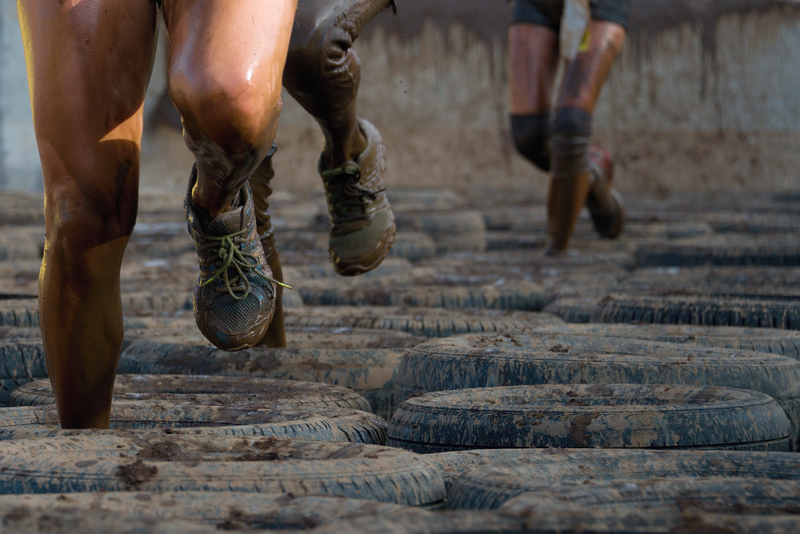All About Hard Rubbish and Disposal Techniques
Proper disposal of hard rubbish is essential for maintaining a clean environment and supporting sustainable waste management practices. This article delves into the world of hard rubbish, exploring its different types, why effective disposal matters, and the various techniques available to handle this challenge.
Understanding Hard Rubbish
Hard rubbish, often referred to as bulky waste or large item disposal, consists of items that can't be disposed of using standard waste collection due to their size or weight. These items can range from household appliances to old furniture and electronic waste. The understanding of what constitutes hard rubbish is crucial for its effective disposal.
Types of Hard Rubbish
- Furniture: Including couches, chairs, tables, and bed frames.
- Appliances: Such as refrigerators, washing machines, and ovens.
- Electronic Waste (E-waste): TV sets, computers, and other electronic devices.
- Green Waste: Large branches and garden debris.
- Construction Materials: Wood, metal, and other construction refuse.

Importance of Proper Disposal
Failure to properly manage hard rubbish can lead to several environmental and social issues, including:
- Environmental Pollution: Improper disposal can lead to the pollution of soil and water bodies.
- Resource Waste: Many items can be recycled or repurposed, reducing the need for new resources.
- Health Hazards: Inappropriate dumpsites can become breeding grounds for pests and pose health risks.
- Visual Pollution: Littering landscapes with hard rubbish deteriorates the aesthetic appeal of our environments.
Techniques for Hard Rubbish Disposal
Various methods focus on efficient and environmentally-friendly disposal practices. Here are some pivotal ones:
Collection Services
Many municipalities offer hard rubbish collection services periodically throughout the year. Residents can schedule pick-ups with their local council, ensuring waste is collected and disposed of without burdening the environment.
Resource Recovery Centers
Also known as transfer stations, these facilities specialize in collecting and sorting hard rubbish for recycling and reuse. Many centers allow residents to drop off items that are then repurposed, reducing landfill waste.
Recycling Programs
Engaging in community-based recycling programs is a proactive way to reduce landfills. Programs are often focused on specific hard rubbish segments like e-waste, offering drop-off locations and partnerships with recycling companies.
Donation and Second-Hand Opportunities
One person's trash can indeed be another's treasure. Items like furniture and appliances, if in good condition, can be donated to charities or sold through second-hand shops and online platforms such as Craigslist or Facebook Marketplace.
DIY Upcycling and Repurposing
Creative minds often embark on upcycling projects that transform hard rubbish into functional or decorative pieces. This approach not only reduces waste but also inspires eco-conscious creativity and innovation. For example, turning old wooden doors into tables or repurposing wood pallets as garden furniture.

Legislation and Guidelines
Most regions have specific regulations regarding the disposal of hard rubbish. It is essential to adhere to these guidelines to avoid legal issues and the potential for fines. Many locales require permits for disposal, especially for construction waste. Always check with local authorities if unsure about regulations.
Challenges in Hard Rubbish Disposal
Disposal of hard rubbish isn't devoid of challenges. The logistical issue of transport for oversized items, the cost associated with paid collection and recycling services, and the limited awareness among the general public about sustainable practices remain hurdles to effective waste management.
Innovations in Disposal Techniques
Thanks to technological advancement, new methods are continually evolving, providing more efficient ways to manage hard rubbish. These innovations include:
- Smart Bins: Equipped with sensors to notify when they need emptying, reducing unnecessary collection runs.
- Advanced Recycling Technologies: Processes that allow for more complex materials to be recycled.
- Mobile Apps: Helping users efficiently schedule pick-ups and locate drop-off centers, enhancing convenience and access to disposal services.
Final Thoughts
With a focus on sustainability, effectively managing hard rubbish is critical for protecting our environment and conserving resources. By adopting progressive disposal techniques, participating in local recycling programs, and understanding the legislative landscape, we can reduce the environmental footprint of our waste. The combined effort of individuals, communities, and governments stands as the cornerstone for fostering a cleaner, healthier planet for future generations.
Adopting a conscious approach to hard rubbish disposal benefits not only the environment but also contributes towards the creation of a more resourceful, economical, and sustainable society. Let us action these changes today for a greener tomorrow.